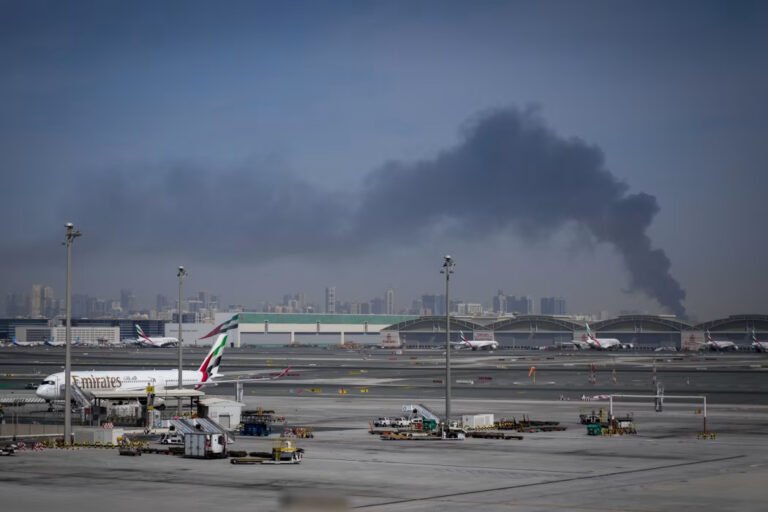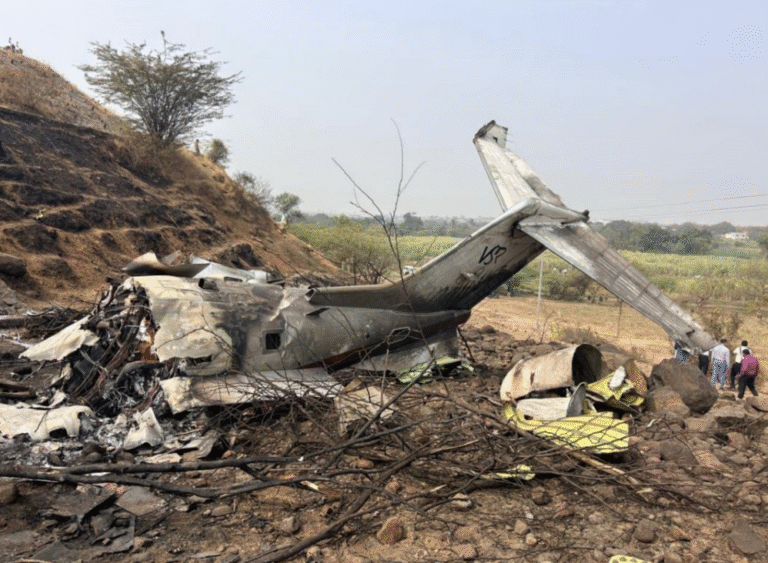Picture Credits: Air India Express
Delhi, INDIA: An Air India Express pilot, Captain Armaan, tragically died of a cardiac arrest shortly after landing a flight from Srinagar to Delhi on April 9, 2025. The incident unfolded at Indira Gandhi International Airport (IGI), just moments after he had safely completed the flight and brought the aircraft to the gate.
According to airline sources, the young pilot who had recently gotten married showed signs of physical distress immediately after landing, including vomiting inside the cockpit. He proceeded to the airline’s dispatch office, where he collapsed suddenly. Medical personnel were rushed to the scene, and Captain Armaan was transported to a nearby hospital. Despite prompt efforts, he was declared dead on arrival.
In an official statement, Air India Express conveyed deep sorrow over the loss: “We deeply regret the loss of a valued colleague due to a medical condition. Our thoughts are with the family during this time of profound grief. We are extending all possible assistance to them as we all cope with this tremendous loss.” The airline also appealed for privacy for the bereaved family and urged the public to refrain from speculation while post-incident procedures and investigations are underway.
Pilot Health in Focus as Tragedy Sparks Industry-Wide Reflection
This incident has reignited serious concerns about the physical and mental well-being of aviation professionals. While commercial pilots in India undergo rigorous health screenings under Directorate General of Civil Aviation (DGCA) regulations, the high-stress nature of the job continues to pose significant challenges.
Captain Armaan’s passing follows a string of similar incidents in recent years. In November 2023, Air India pilot Himmanil Kumar collapsed during training at Delhi Airport and died. In another case, an IndiGo pilot succumbed to a cardiac arrest at Nagpur airport in August 2023 just before boarding a flight.
Experts say these recurring tragedies underscore the urgent need for stronger health surveillance and fatigue management systems in the airline industry. Calls are growing louder for regular, comprehensive medical checks tailored to the specific stressors of aviation roles.
Air India Express has reaffirmed its commitment to employee welfare and has assured that all support mechanisms are being extended to the late pilot’s family during this difficult time.
Delhi High Court Clears Revised Crew Rest Norms Amid Tragic Timing

Coinciding with this devastating loss, the Delhi High Court on April 7, 2025, disposed of a six-year legal battle brought by pilot associations demanding safer duty hours. The court confirmed that the DGCA’s revised duty norms would be implemented in two phases starting July 1.
Key changes include increasing weekly rest periods from 36 to 48 hours and expanding the definition of night duty to include hours from midnight to 6 a.m. Additionally, pilots will be restricted to a maximum of two landings during night operations. Airlines have been directed to submit implementation plans within 15 days, with the court emphasizing that the July deadline is non-negotiable.
The ruling is being viewed as a much-needed intervention to address long-standing concerns about fatigue and overwork in the cockpit. With Captain Armaan’s death fresh in memory, the urgency to act on these reforms has become even more pronounced.
As India’s aviation industry continues to expand rapidly, this tragedy serves as a stark reminder of the human cost behind the cockpit door and the pressing need to prioritize pilot health, rest, and overall well-being.
Stay tuned to Aviation Today for more such news!





















